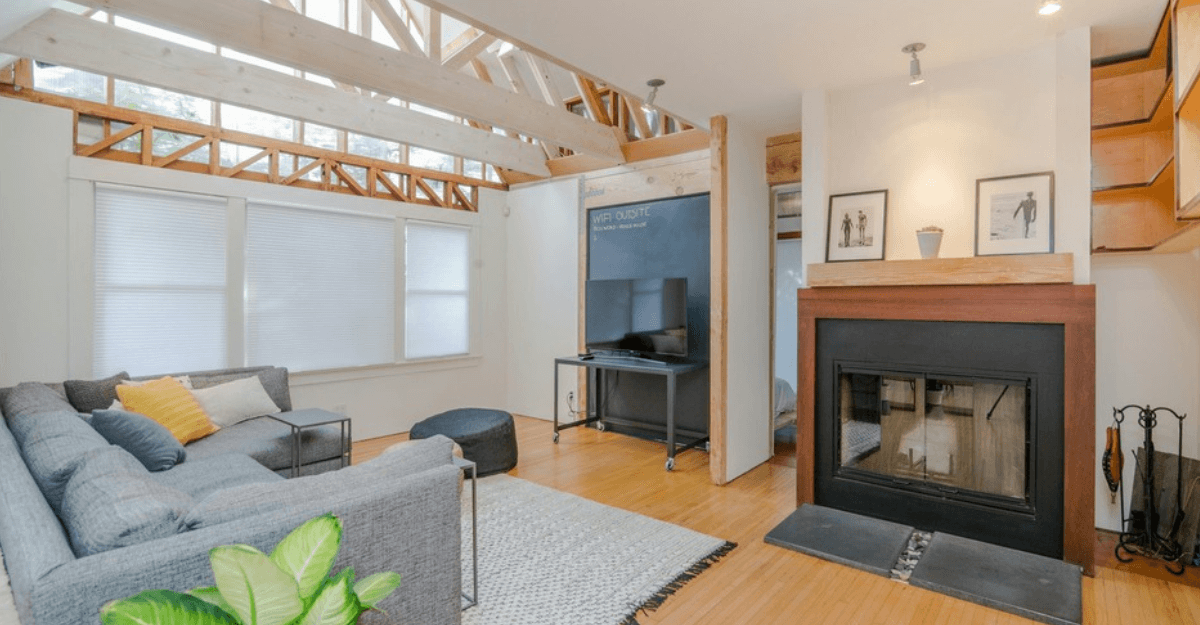A cluttered home can have a significant impact on your overall well-being. Living in a space filled with unnecessary belongings can lead to feelings of stress, overwhelm, and even anxiety. Clutter can make it difficult to find things when you need them, causing frustration and wasting valuable time. Additionally, a cluttered home can make it challenging to relax and unwind, as visual chaos can affect your mental state.
Decluttering your home is not just about tidying up; it is about creating a space that supports your physical and mental health. A clutter-free environment allows for better focus, increased productivity, and a greater sense of calm. When your home is organized and free of unnecessary items, you can enjoy a more peaceful and harmonious living space.
Benefits of a clutter-free home
A clutter-free home offers numerous benefits that extend beyond just having a tidy space. First, decluttering can help reduce stress levels. An article published in the New York Times examined various studies that have shown the relation between physical clutter and increased levels of the stress hormone cortisol. By eliminating clutter, you create a sense of order and control, promoting relaxation and a more serene environment.
Second, a clutter-free home can boost productivity. When your living space is organized and free of distractions, you can focus better on tasks at hand. Clutter can be overwhelming, leading to a lack of concentration and decreased efficiency. By decluttering, you create an environment that supports productivity and allows you to accomplish more in less time.
Last, a clutter-free home can positively impact your mental health. Clutter has been linked to increased feelings of anxiety and depression. Living in a space filled with unnecessary items can create a sense of chaos and overwhelm. By decluttering and creating a more minimalist living space, you can create a calmer and more peaceful atmosphere, promoting a positive mindset and overall well-being.
The psychology behind decluttering
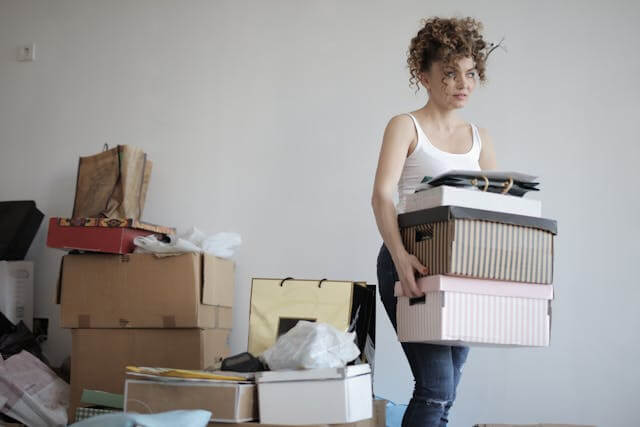
Understanding the psychology behind decluttering can provide insight into why it is such a powerful practice. Decluttering is not just about getting rid of physical possessions; it is about making intentional choices and letting go of attachments.
Psychologically, decluttering allows you to create a sense of control over your environment. It is a way of taking charge and making decisions about what you surround yourself with. This sense of control can promote feelings of empowerment and boost self-esteem.
Decluttering also taps into the concept of minimalism, which emphasizes the importance of living with less. Minimalism encourages a focus on experiences, relationships, and personal growth rather than material possessions. By embracing minimalism through decluttering, you can shift your mindset and prioritize what truly matters in life.
Additionally, decluttering can have a cathartic effect on your emotional state. Letting go of items that no longer serve you can be liberating and can help release emotional baggage. The act of decluttering can be a form of self-care, allowing you to create space for new opportunities and experiences.
Getting started: Steps to declutter your home
Decluttering your home may seem like a daunting task, but breaking it down into manageable steps can make the process more achievable. Here are some steps to help you get started on your decluttering journey:
- Set goals: Determine what you want to achieve through decluttering. Whether it’s creating a more organized space or reducing stress, having clear goals will provide motivation and direction.
- Start small: Begin with a small area or a specific category of items. This could be a drawer, a closet, or even your kitchen pantry. Starting small allows you to build momentum and experience small victories along the way.
- Sort and categorize: As you declutter, sort your belongings into categories such as keep, donate, sell, or discard. This will help you make decisions more efficiently and stay organized throughout the process.
- Make decisions intentionally: When deciding whether to keep or let go of an item, consider its usefulness, sentimental value, and whether it aligns with your current lifestyle. Be honest with yourself and avoid holding onto items out of guilt or obligation.
- Create a system: Establish an organizational system that works for you. This could involve using storage containers, labeling items, or implementing a regular cleaning and decluttering routine. Having a system in place will help you maintain a clutter-free home in the long run.
Remember, decluttering is a journey, and it’s okay to take it one step at a time. Celebrate your progress along the way and be patient with yourself throughout the process.
Room-by-room decluttering tips
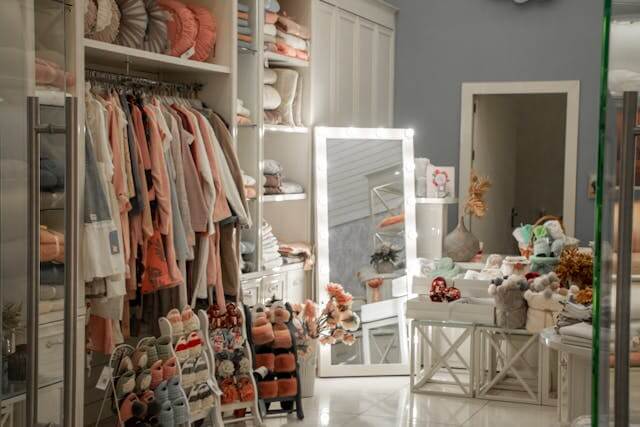
Decluttering room by room can help you stay focused and ensure that every area of your home receives the attention it needs. Here are some specific decluttering tips for each room:
Living Room
- Start by removing any items that don’t belong in the living room, such as dishes or clothing.
- Clear out old magazines, newspapers, and outdated electronics.
- Consider donating or selling furniture that no longer serves your needs or style.
- Create designated storage spaces for items like books, remote controls, and blankets.
Kitchen
- Clear out expired food and spices from your pantry and refrigerator.
- Get rid of duplicate or rarely used kitchen gadgets and utensils.
- Organize your kitchen cabinets by grouping similar items together.
- Consider installing additional storage solutions, such as a pot rack or wall-mounted shelves.
Bedroom
- Remove clothing that no longer fits or that you haven’t worn in the past year.
- Declutter your bedside table by keeping only essential items within reach.
- Create a system for organizing your accessories, such as jewelry and belts.
- Consider donating or selling excess bedding or pillows.
Bathroom
- Discard expired medications and toiletries.
- Organize bathroom cabinets and drawers by grouping similar items together.
- Consider installing additional storage solutions, such as a shower caddy or wall-mounted shelves.
- Declutter your bathroom countertop by keeping only the essentials.
By following these room-by-room decluttering tips, you can create a more organized and peaceful living environment.
Organizing and storage solutions
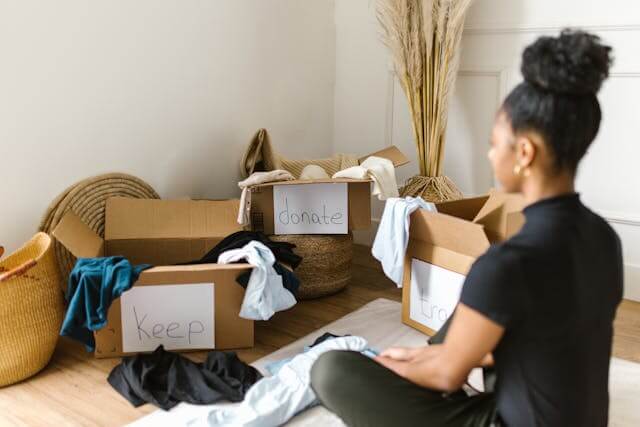
Once you have decluttered your home, organizing and finding suitable storage solutions is key to maintaining a clutter-free space. Here are some organizing and storage ideas to help you keep your home tidy:
- Utilize storage containers: Invest in high-quality storage containers that can be used to store items in an organized and accessible manner. Clear plastic bins or baskets can be particularly useful for categorizing and storing items.
- Maximize vertical space: Make use of wall-mounted shelves, hooks, and hanging organizers to free up floor space and keep items off surfaces. Vertical storage solutions can be especially beneficial in small spaces.
- Utilize underutilized spaces: Look for underutilized spaces in your home, such as the area under your bed or the back of closet doors. These spaces can be utilized for storing items that are not frequently used.
- Label everything: Labeling storage containers and shelves can help you quickly find and put away items. Clear and visible labels ensure that everything has a designated place, making it easier to maintain an organized home.
- Regularly review and reassess: Regularly review your storage systems and make adjustments as needed. As your needs change, you may need to reorganize or invest in additional storage solutions to accommodate new items.
Implementing these organizing and storage solutions, can help you create a more functional and clutter-free home.
Maintaining a clutter-free home
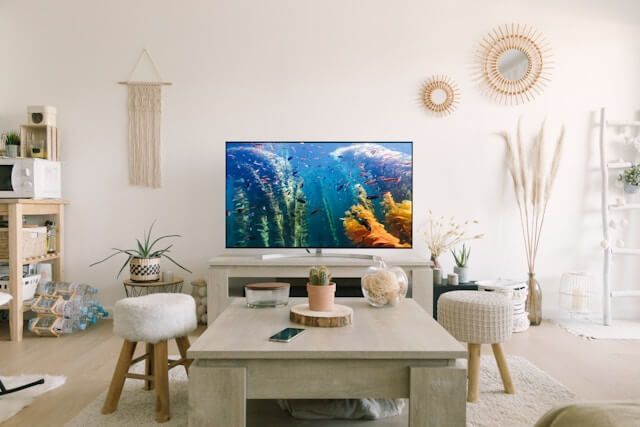
Maintaining a clutter-free home requires ongoing effort and commitment. Here are some strategies to help you maintain a clutter-free living space:
- Adopt a minimalist mindset: Embrace minimalism as a way of life and prioritize experiences and relationships over material possessions. By adopting a minimalist mindset, you’ll be less likely to accumulate unnecessary items.
- Practice intentional purchasing: Before buying something new, consider whether it aligns with your needs and values. Avoid impulse purchases and focus on acquiring items that serve a purpose or bring you joy.
- Adopt a one-in, one-out rule: For every new item you bring into your home, commit to removing one item. This helps prevent clutter from accumulating over time.
- Regularly declutter and organize: Set aside time on a regular basis to declutter and organize your living space. This could be a weekly or monthly routine, depending on your needs and schedule.
- Stay organized day-to-day: Adopt daily habits that help you stay organized, such as putting items back where they belong after use or dedicating a few minutes each evening to tidying up.
Decluttering for a happier and healthier life
Decluttering goes beyond creating a tidy home; it can have a profound impact on your overall happiness and well-being. Here are some ways in which decluttering can contribute to a happier and healthier life:
- Reduced stress: Living in a clutter-free environment can significantly reduce stress levels. A clean and organized space promotes relaxation and helps create a sense of calm.
- Increased productivity: A clutter-free home allows you to focus better and be more productive. Without the distractions of clutter, you can accomplish tasks more efficiently and effectively.
- Enhanced mental well-being: Clutter has been linked to increased feelings of anxiety and depression. By decluttering and creating a more minimalist living space, you can promote a positive mindset and overall mental well-being.
- Improved physical health: Clutter can contribute to poor indoor air quality and make it challenging to maintain a clean and healthy living environment. By decluttering, you can improve indoor air quality and reduce the risk of allergies or respiratory issues.
- Better relationships: A clutter-free home can foster better relationships with family and friends. A clean and organized space allows for more quality time together and reduces the stress of searching for misplaced items.
Decluttering challenges and how to overcome them
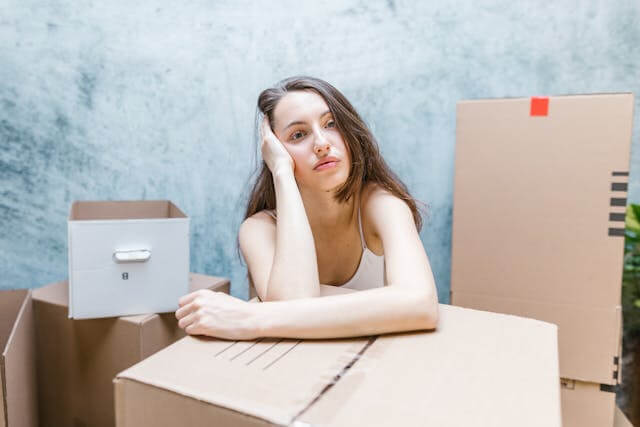
Decluttering can present various challenges along the way. Here are some common decluttering challenges and strategies for overcoming them:
- Emotional attachment: Letting go of sentimental items can be difficult. Take time to reflect on the memories associated with the item and consider whether it serves a practical purpose in your current life. If necessary, take a photo of the item to preserve the memory before letting it go.
- Overwhelm: Decluttering an entire home can feel overwhelming. Break the process down into smaller tasks and focus on one area at a time. Celebrate small victories along the way to boost motivation.
- Decision fatigue: Making decisions about every item can be mentally exhausting. Set a time limit for each decluttering session and give yourself permission to make quick decisions. Trust your instincts and remember that decluttering is about creating a more intentional and purposeful living space.
- Lack of time: Finding time for decluttering can be challenging. Schedule dedicated decluttering sessions in your calendar and commit to them. Even short, focused bursts of decluttering can make a significant impact over time.
- Fear of letting go: Fear of needing an item in the future can hinder the decluttering process. Start with items that are easier to let go of and gradually work your way up to more challenging ones. Remind yourself that letting go of unnecessary items creates space for new opportunities and experiences.
Conclusion: Embracing a clutter-free lifestyle
Decluttering is not just about having a tidy home; it is about creating a space that supports your physical and mental well-being. By embracing a clutter-free lifestyle, you can experience numerous benefits, including reduced stress, increased productivity, and enhanced mental well-being.
Remember that decluttering is a journey, and it’s okay to start small and progress at your own pace. By following the steps outlined in this article, utilizing room-by-room decluttering tips, implementing organizing and storage solutions, and adopting strategies for maintaining a clutter-free home, you can create a happier and healthier living environment.
Embrace the art of decluttering and discover the transformative power it can have on your life. Start today and enjoy the countless benefits of a clutter-free home.

